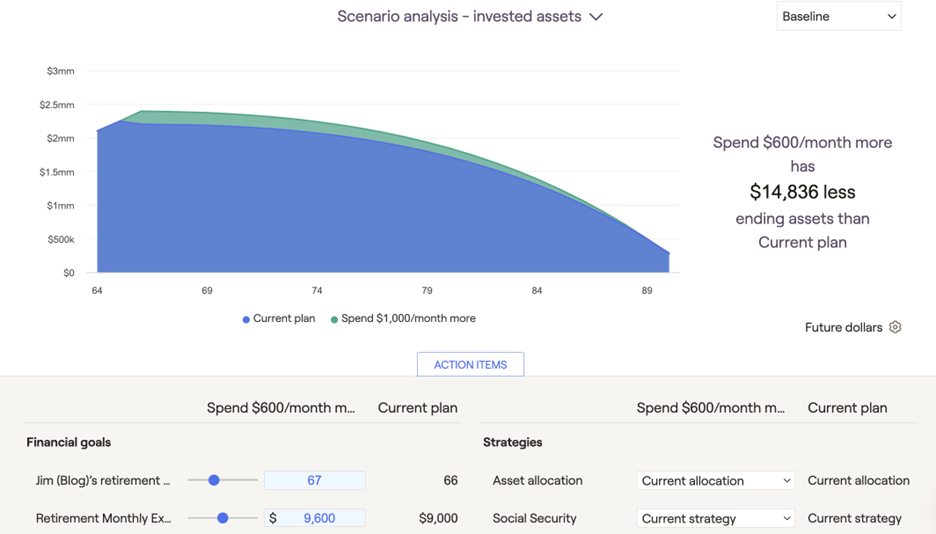The Surprising Impact of Working 1 More Year
One of the most common tweaks I make to financial projections is the projected retirement date. Sometimes, we move retirement forward due to changing work circumstances, and sometimes we move it back to try to maximize earning potential at the tail end of a career.
I advise clients who are financially prepared to retire not to delay it too long. The early years of retirement are among the most exciting, and missing out on them by working unnecessarily longer can lead to regret.
With that said, there can be a substantial positive impact from working just one more year. When you work one more year, there are several ways it affects your financial plan -
You can continue saving in your 401(k) and other savings.
Those investments avoid withdrawals.
The length of time you need to fund retirement drops by a year.
These can provide a greater margin of error or can allow for more spending in retirement.
Example) Consider “Jim,” a 65-year-old man with a Social Security benefit of $3,400 at full retirement age and approximately $2 million saved in a 401(k). He wants to spend $9,000/month, plus Medicare costs, in retirement.
He wants to retire next year at 66. His plan appears relatively well-funded, with a projected $ 285,000 left at the end of his life (age 90). However, if he works one more year, there is a projected $926k, a substantial difference of $641k.
His goal may not be to create more margin in his plan. Maybe he wants to spend down his assets as much as possible. If that’s the case, then how much more can he spend in retirement by working one more year? He can increase his spending from $9,000 to $9,600/month - a $600/month difference.
If I were working with Jim, I would ask him, “Do you need the $9,600/month to do everything you want?” We would probably need to review spending from the past few years to find out. If it turns out that he only needs $7,000/month, for example, there is no financial benefit to continuing to work, besides leaving more behind when he dies.
The goal should not be to work year after year for no reason. But adding an extra year at the tail end of a career can have a substantial impact on your long-term plan and can help you accomplish more of your goals.
Happy Planning,
Alex
This blog post is not advice. Please read disclaimers.


